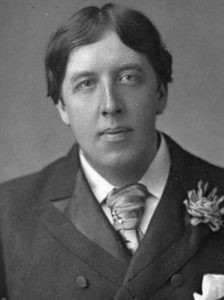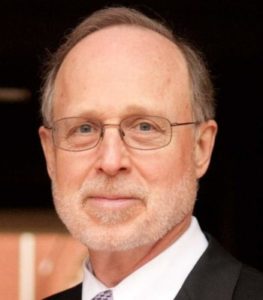Conversion therapy (also known as reparative therapy) is rooted in the idea that same-sex attraction is a sickness that can be healed. Throughout most of the 20th century, psychoanalytic and behavioral psychologists had different ways of explaining same-sex attraction, but it was generally assumed that some form of developmental malfunction was involved. A variety of fixes were proposed, everything from talking cures, to electroshock therapy, to ice-pick lobotomy (which is every bit as nasty as it sounds), to aversion therapies in which subjects were shown homoerotic images after nausea had been induced.
The typical Victorian response to same-sex attraction was simple moral revulsion. The subject was so taboo that it was rarely discussed in public.

Oscar Wilde
In 1895, when the playwright Oscar Wilde was convicted of “gross indecency,“ he was forced to walk a treadmill for hours a day, a punishment so barbaric it was banned in England in 1903 as a form of torture. The only reading material Wilde was allowed was the Bible and Pilgrim’s Progress. At one point, while being transferred between prisons, a crowd jeered and spat at him as he stood on the railway platform.
So thinking of same-sex attraction as a developmental malfunction rather than a moral failing was an advance.
But when the gay rights movement was sparked by the Stonewall police riot in 1969, mainstream attitudes toward homosexuality underwent a gradual revolution. In 1973, the American Psychiatric Association stipulated that same-sex attraction no longer would be regarded as a form of mental illness. By the 1990s, the only people championing conversion therapy were evangelical Christians.

Robert Spitzer
Their movement received a boost in 2003, when Robert Spitzer, the prime architect of the APA’s 1973 decision to stop labeling homosexuality as an illness, released a study suggesting that, in some cases at least, sexual orientation could change. Christian groups like Exodus International and Focus on the Family leapt for joy. A stream of testimonials poured forth from formerly gay men who claimed to be functioning heterosexuals. Conversion therapy became a hot media topic.
For a while. Then the bottom dropped out. In 2013, Spitzer reversed himself yet again. His earlier methodology had been deficient. He now was convinced that sexual orientation was an immutable fact of life. That same year, after many of its supposed converts had “relapsed,” Exodus International went out of business and apologized to those who had been damaged by its work. Conservative evangelicals like James Dobson of Focus on the Family continued to cite Spitzer’s 2003 study, but the conversion therapy movement never would recover.
Mohler’s 2015 book
In his 2015 book, We Cannot Be Silent: Speaking Truth to a Culture Redefining Sex, Marriage, and the Very Meaning of Right and Wrong, Al Mohler, president of Southern Baptist Theological Seminary in Louisville, Ky., argued that the marriage between biblical Christianity and psychotherapeutic theory had been wrongheaded from the drop. Secular forms of therapy, he said, were overrated.
In 2005, Southern Seminary abandoned the old term “pastoral counseling,” a blend of biblical and psychotherapeutic practice. Instead, the seminary would offer courses in “biblical counseling.” Since the Bible contains the full counsel of God, seminary officials argued, secular modalities were unnecessary.

Albert Mohler
Mohler remained adamant that “the gay lifestyle” and “gay marriage” were inherently sinful. We Cannot Be Silent argued that if a son or daughter marries a person of the same sex, mom and dad should boycott the ceremony. Attending your child’s gay wedding, he argued, was a tacit affirmation of gay marriage.
Although he believed gay marriage and “the gay lifestyle” remained sinful, Mohler no longer believed that secular forms of therapy could change sexual orientation. The problem was spiritual and demanded a spiritual response, he said.
“By God’s grace, that might happen over time as a sign of God’s work within the life of that individual,” Mohler stated at a seminary-sponsored conference held in conjunction with the release of his book. But “for many, many people struggling with these patterns of sin, it will be a lifelong battle.”
The words “lifelong battle” were Mohler’s way of admitting that preaching, penitence and prayer were no more likely to alter sexual orientation than were secular forms of therapy. Since heterosexuality wasn’t a realistic option for some people, lifelong celibacy was the only option.
“Since heterosexuality wasn’t a realistic option for some people, lifelong celibacy was the only option.”
Here Mohler was parting company with the Pentecostal/Charismatic wing of the evangelical coalition. Mohler calls himself a “friendly cessationist.” He believes the kinds of signs and wonders we read about in the Bible died out at the conclusion of the Apostolic Age. God can perform miracles whenever God wishes, Mohler insists, but the Almighty shows little interest in the flashy stuff these days. The practice of exorcism, favored by Trump-supporting preachers like Paul White, was right out.
Mohler gets new religion
But Mohler is a resilient man. Six years after giving up on conversion therapy, he has emerged as its champion. In a rambling, 4,000-word essay published in The Briefing blog on April 22, Mohler lamented that the United Kingdom is poised to ban conversion therapy.
“We believe that Christians can fight sin and must fight sin,” Mohler says. Further, “we believe that by the means of grace, Christians, all Christians are to be conformed to the image of Christ.” Then comes the kicker: “We understand that there are those who have a sexual inclination that is not biblical. We understand that that is of sin. That it is in essence itself, sin and sinful.”
“We understand that there are those who have a sexual inclination that is not biblical. We understand that that is of sin.”
In We Cannot be Silent, Mohler argued that even if same-sex orientation is innate and immutable, it remains sinful. Even the discovery of a “gay gene” wouldn’t change his thinking. If the Bible calls something sin, that’s what it is. The fact that it might be “natural” changes nothing. Because we live in a fallen world, what is “natural” still may be wrong. The natural world, he says, is “tainted by sin.”
Therefore, if the case for banning conversion therapy implies that gay is good, Mohler’s against it.
He points out that, in the United Kingdom, Prime Minister Boris Johnson backs the ban. Since Johnson leads the Conservative Party, the last bastion of opposition has disappeared and the cause is lost.
Mohler overstates the case. Johnson did promise to ban conversion therapy shortly after rising to the position of prime minister in 2019, but at the first sign of push-back from UK evangelicals, the prime minister backed off. Johnson has denied being “a serious, practicing Christian,” but he’s a smart politician. Jayne Ozanne, a devout evangelical Christian, recently resigned from Johnson’s cabinet to protest the government’s foot-dragging.
Jayne Ozanne and Matthew Hyndman

Jayne Ozanne
Growing up in the conservative evangelical wing of the Church of England, Ozanne gradually came to terms with the fact that she was gay. She says she has seen God work some amazing miracles over the years, especially through her work with the Archbishop’s Council, but changing her sexual orientation wasn’t one of them. Realizing that all the prayer in the world wouldn’t help, Ozanne took a vow of lifelong celibacy. But after 20 years of living in denial, her body literally shut down and she wound up in a hospital bed. Unable to find a physiological problem, her doctor said: “Jayne, there is obviously something deeply wrong here. You will die unless you actually confront what’s going on.”
That’s when Ozanne decided to take a fresh look at Scripture. “And I think the biggest thing for me was trying to understand the real core of the message of Christ,” she says. “Which is that he came to save the lost, that he came to love all, and that nothing, absolutely nothing, can separate us from that love of Christ.”
In Mohler’s extended rant, he mentions “God” 14 times and the Bible (or God’s word) 21 times. Jesus gets two mentions. The word “love” doesn’t appear at all. In Mohler’s theology, the “Word of God” is the Bible. For evangelicals like Ozanne, the Word of God is Jesus.
Mohler refers to Ozanne as “a person identified in this news report as gay evangelical Christian,” which implies that she can’t be a true evangelical because she is a mouthpiece for the “gay agenda.” Why else would she say that she takes “freedom of religion very seriously up until the point that it causes harm.” Mohler resents the suggestion that the gay agenda is the cure for an evangelical disease.

Matthew Hyndman
This resentment takes center stage when Mohler eviscerates Matthew Hyndman, the gay ex-evangelical who is currently leading the charge against conversion therapy in the UK. Hyndman opposes any “religious exemption” to the proposed ban on conversion therapy that would permit attempts to “pray the gay away.” If this kind of prayer takes place “in an overwhelmingly homophobic or transphobic context,” Hyndman says, “the pernicious power of prayer must be dealt with.”
If Mohler wore pearls, he would be clutching them. But Hyndman is simply stating that prayer predicated on the view that gay and transgender persons are sinners in the hands of an angry God becomes pernicious.
Like Jayne Ozanne, Hyndman speaks from experience. When he came out to his faith community in Northern Ireland at the tender age of 21, he was swiftly excommunicated. Forgiveness was impossible, Hyndman’s friends and family told him, unless he repented his sin and submitted to conversion therapy.
For people like Ozanne and Hyndman, conversion therapy is painfully personal. For Mohler, it’s an abstraction. Considered objectively, the practice is ineffective. But since it has become a pawn in the culture war, it must be defended. It’s the Bible or the gay agenda, and he stands with the Bible.
“For people like Ozanne and Hyndman, conversion therapy is painfully personal. For Mohler, it’s an abstraction.”
Parallels to young earth creationism
Mohler’s defense of conversion therapy mirrors his embrace of young earth creationism. The physical evidence, Mohler freely admits, suggests an ancient earth. But since the Bible describes a young earth, the apparent age of the planet is deceptive. God, for God’s own inscrutable reasons, made the earth to appear old.
In similar fashion, Mohler accepts the idea that, in virtually every case, sexual orientation cannot be altered. But it doesn’t matter that same-sex attraction comes naturally to some people. It’s unbiblical. And therefore, it must be sinful.
From our limited perspective, God might appear cruel and capricious, making the world look older than it actually is and creating gay people and then condemning them for being gay. But a Sovereign God makes the rules; we don’t.
The people who tune in to The Briefing may accept this tortured logic; but thinking Christians will demand something better.

Alan Bean
Alan Bean is a graduate of Southern Baptist Theological Seminary who now lives in Fort Worth, Texas, where he is a member of Broadway Baptist Church and leads a nonprofit organization, Friends of Justice.
Related articles:
On banning conversion therapy: Listen with your heart| Opinion by Bob Browning
Two campaigns launched to ban ‘conversion therapy’
Repressing my sexual orientation cost me my health — permanently | Opinion by Amber Cantorna


